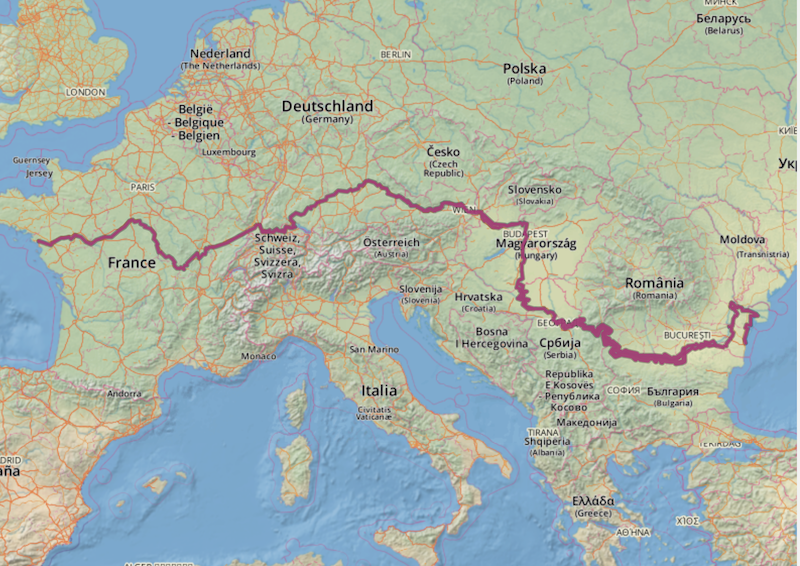
EuroVelo 6 is a popular international bike route connecting the Atlantic to the Black Sea; the level terrain, good infrastructure, plentiful sights, and beautiful nature alongside it are some of the reasons it draws thousands of bike packers year-round. The dotted line marking the Bulgarian stretch of the route along the Danube River—signifying absent markings and ill-kept roads—turns off many cyclists.
Not Ned Dervenkov. Two years ago, he set out not only to conquer that stretch of road but also to help change its “under development” status. To prove that it is accessible to anyone, Ned and his partners from Balkans Everywhere, three bike packers with more than 30,000 Instagram followers, invited a special friend along. Peter Neftelimov has cerebral palsy and cannot move unassisted, let alone ride a bike. So, the crew had a custom three-wheeler built, with Peter riding in the backseat and each of the three taking turns to pedal. Their week-long adventure along a Bulgarian stretch of the EuroVelo 6 route garnered a lot of media attention and was captured in a short movie called EuroVelo for All.
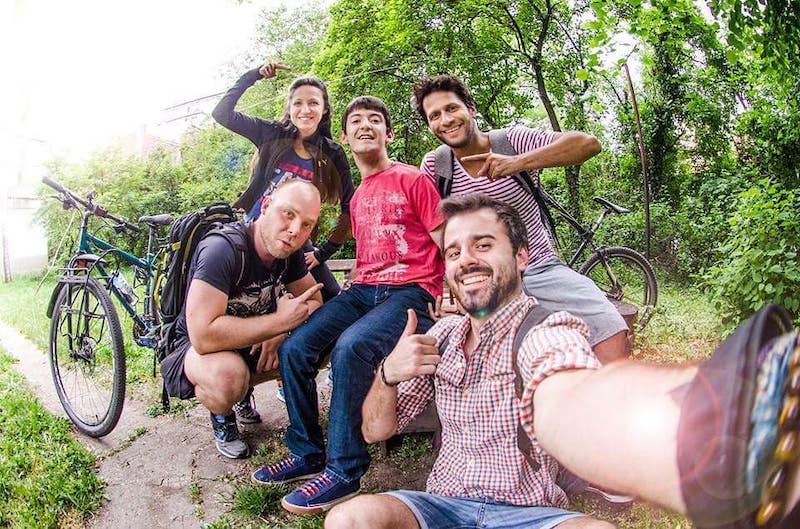
“We wanted to show two things: first, that disadvantaged people can be free and can experience everything everyone else can with the right infrastructure and conditions in place,” Ned says. The second goal was to show that updating road signs along the Bulgarian part of EuroVelo 6 would require only a modest investment by local governments but could reap considerable benefits for their economies by encouraging tourism.
While the film and the resulting publicity raised awareness of the opportunities the route provides for tourists as well as for the communities alongside it, few improvements have been made to the cycling infrastructure, and the route’s dotted-line rating remains unchanged to this day. A missed opportunity for tourism along the Danube.
For Peter, however, the trip was a life-affirming, barrier-razing experience, one he called “true luxury” because it helped him “realize that I’m one of the few who stepped outside their comfort zone and were truly alive.”
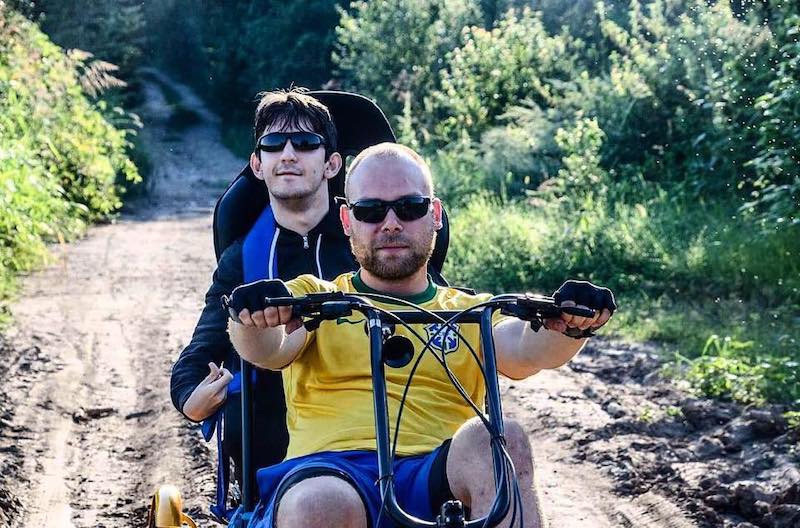
This is the kind of feedback that motivates all of Ned’s activities, personal and professional. Whether he is building housing for poor families in Uganda, teaching English to disadvantaged kids in Northern Thailand, mentoring aspiring entrepreneurs or organizing clean-ups of illegal dumping grounds in his native Bulgaria, Ned relishes the opportunity to empower the less fortunate and help improve life for entire communities. Likewise, all of his entrepreneurial ventures to date have attempted to address challenges experienced by ordinary people or offer effective, sustainable solutions to more global problems such as overconsumption, pollution, and environmental damage.
Ned first discovered just how gratifying doing something for another being was as an international business student at Aston University, in Birmingham, England. He would help fundraise for local causes as well as for international missions and became such a regular at public venues in Birmingham, yellow-and-white charity bucket in hand, that his mother admonished from back home, “I sent you abroad to study, not to beg in the streets.”
He laughs about it today, but this episode brought home to him the importance of nurturing a giving culture in Bulgaria and further strengthened his motivation to help out, no matter where he found himself—whether as an exchange student in Seville, Spain, a volunteer in Jinja, Uganda, a sales expert in London, the United Kingdom, or an entrepreneur in Sofia, Bulgaria.

Today, it is not unusual for Ned to be out enjoying a favorite outdoor sport and wonder how to turn the experience into something benefitting others as well. A talented photographer with a knack for capturing adventure, he often donates photographs from his bike-packing, adventure camping, or snowboarding trips to charity exhibitions. His closest people are already prepared: an outing in nature with Ned usually results in a forest clean-up effort or a rescue mission for an abandoned puppy. This is also how Balkans Everywhere—the Instagram account chronicling Ned and two friends’ cycling exploits around the Balkan Peninsula—evolved into a platform to lobby for tourism infrastructure upgrades and better disabled access.
“Each person’s responsible behavior is shaped by the example set by those around him. [That’s why] you always have to be a good example. True leadership is about leading through personal example, through your own actions,” Ned says.
Personal responsibility is also a guiding principle for the work of the organization Ned leads, BESCO – the Bulgarian Startup Association, representing more 500 technological startups and helping lay the legal groundwork for the digitization of the Bulgarian economy. Each member has to abide by the organization’s ethical code, which Ned helped write—“The Startup Bushido”—which borrows the Japanese word for a samurai code of honor and lays out the ethical requirements that Ned believes should guide business activities in Bulgaria.
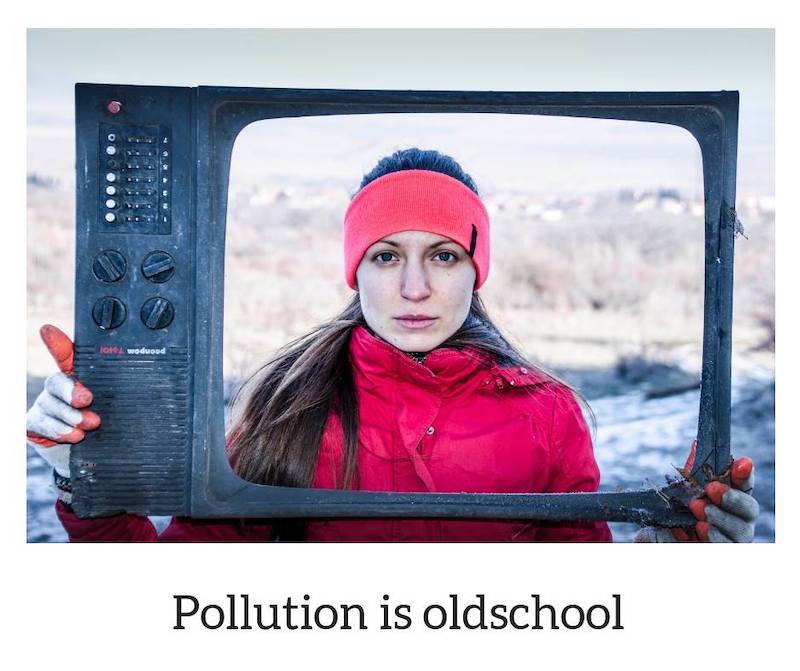
“Our mantra at BESCO is that you shouldn’t steal, you shouldn’t lie, you should have a ‘give back’ mentality, you should treat your competitors and employees well. Things that sound simple but are simple only in theory,” Ned says.
It is not unusual for the association to turn down applications for membership if it believes a company cannot meet these standards.
Ned explains: “We want to build a community that is honest and ‘clean,’ so it will keep to the course we have charted. You should be able to pass on to those after you the right value system, course, and direction, helping scale everything up.”
Along with the organization’s efforts to make business more ethical, BESCO is working toward
legislative changes to make it easier for companies to obtain investor funding and hire non-EU workers and for Bulgaria to attract foreign investment and startup talent. For the future, BESCO has its sights on pension reform and the passing of a personal insolvency law that allows entrepreneurs to start over more easily.
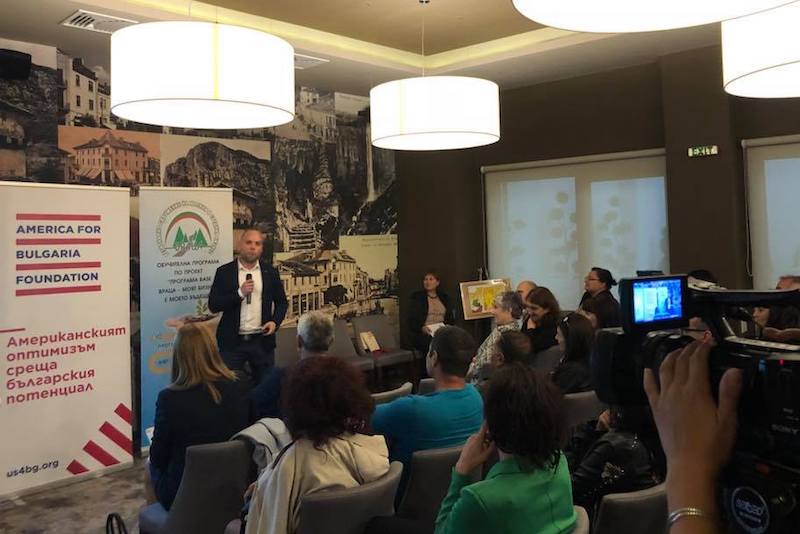
Collectively, BESCO members are helping change the idea of business as a dog-eat-dog proposition and encourage collaboration in the name of creating a strong Bulgaria brand. “Giving back is the most important part of our code of honor and is a mark of the new generation of entrepreneurs in Bulgaria. We believe that social and economic progress requires sharing of resources, which includes knowhow and knowledge, as well as a common vision and mission,” Ned says.
He admits that these words sound idealistic but adds, “These are our fundamental principles, and BESCO won’t renege on them.”
Nor will Ned ever give up trying to fill in dotted lines where he sees them. With enough people adopting that mindset and being willing to do the work, Bulgaria will miss fewer opportunities—and the benefits will trickle down to ever more individuals as well as whole communities.
In addition to BESCO founder, Ned is a member of the Association of Bulgarian Leaders and Entrepreneurs (ABLE), a graduate of ABF’s Summer Entrepreneurship Program, and a serial entrepreneur with experience in sustainable fashion, finance, and high tech. He has mentored individuals and startups in Business Academy for Starting Entrepreneurs (BASE), the pre-accelerator Start It Smart, and Eleven Startup Accelerator.
BESCO’s work is supported in part through a grant by the America for Bulgaria Foundation.

